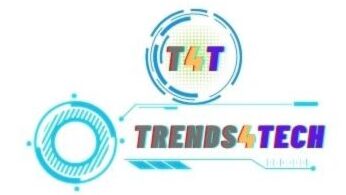What Employers Should Know About Cyber Background Checks
In the age of the Internet, employers are increasingly turning to cyber background checks as a way to screen job applicants. However, when conducting these checks, employers should keep a few things in mind. Keep reading to learn more about a cyber background check and what employers should know.
What can employers use a background check for?
The Internet has made it easier than ever for employers to screen potential employees. By running a background check, employers can learn about an applicant’s online presence, including any criminal history or other damaging information that may not be available in a traditional background check.
A cyber background check can include searching the web for an applicant’s name and email address, as well as checking social media sites like Facebook, Twitter, and LinkedIn. Employers can also use search engines to determine if an applicant has been involved in legal disputes or published negative content online.
Additionally, employers can use specialized services to conduct more comprehensive background checks. By using these services, employers can get a detailed overview of an applicant’s online history and determine if they are a risk worth taking.
Read more about: cyber attacks
Are there any legal restrictions on who can request and view a background check report?
There are no specific legal restrictions on who can request and view a background check report. However, the Fair Credit Reporting Act (FCRA) sets out specific requirements for how consumer reporting agencies (CRAs) must conduct their business. These provisions include, among other things, the requirement that CRAs provide individuals with a copy of their credit report upon request and the right to dispute inaccurate information in their report. The FCRA also imposes limitations on an employer’s use of a consumer credit report in making employment decisions. Employers generally cannot use consumer credit reports to make hiring decisions for positions that involve regular contact with children or elderly adults.
What should employers know about background checks?
When it comes to background checks, employers should be aware of the different types of screenings that are available and the information that they can provide. There are three main types of screenings: criminal history checks, credit reports, and sex offender registries.
Criminal history checks will show arrests or convictions on a person’s record. Credit reports will show how responsible a person has been with their finances in the past and whether they have any bankruptcies or outstanding debts. Sex offender registries will show if a person is registered as a sex offender in any state.
Employers should consider the type of position they are hiring for and which type of screening is most relevant. For instance, if an employer is hiring for a financial position, they may want to run a credit check to ensure the candidate is financially responsible. If an employer is hiring for a position that involves children, they may want to run a sex offender registry check to make sure the candidate does not have any convictions for child molestation.
Employers need to keep in mind that background checks are just one part of the overall vetting process. They should always do reference checks and meet candidates in person before making a final decision.
How can employers mitigate these risks?
Employers can mitigate the risks associated with background checks by only using reputable, third-party services to conduct these screenings. They should also carefully review any background check results before making a hiring decision. By taking these precautions, employers can help protect themselves from potential lawsuits and other forms of liability.
Employers need to be aware of the potential risks associated with cyber background checks using Asus 2-In-1 Q535. While they can be a valuable tool for assessing a candidate’s digital footprint, they also carry the potential for privacy and security breaches. Employers should ensure that conducting these checks is as secure as possible and that the information they receive is accurate and up-to-date.

